The Role of Depreciation in Corporate Tax Calculations for UAE Businesses
Depreciation is an accounting method used to allocate the cost of a tangible asset over its useful life.
In simpler terms, it reflects the gradual wear and tear, obsolescence, or decline in value of an asset over time. For example, a company that purchases machinery will gradually deduct a portion of the machinery’s cost from its income over several years rather than expensing the entire cost in the year of purchase.
Depreciation plays a crucial role in corporate tax calculations in the UAE. By deducting a portion of the asset’s cost from taxable income, businesses can reduce their tax liability and improve their overall financial performance.
Understanding the principles of depreciation and applying them correctly is essential for UAE businesses to optimize their tax positions and ensure compliance with tax regulations.
Depreciation in the UAE: Key Concepts
Depreciation is a crucial accounting principle that allows businesses to gradually deduct the cost of tangible assets over their useful life. In the UAE, understanding depreciation methods and eligibility criteria is essential for accurate tax calculations.
Depreciation Methods in the UAE:
- Straight-Line Method: This is the most common method, where the cost of the asset is evenly spread over its useful life.
- Diminishing Balance Method: This method results in higher depreciation charges in the earlier years of an asset’s life and lower charges in later years.
The specific depreciation method chosen can significantly impact the timing and amount of tax deductions.
Eligibility Criteria for Depreciable Assets:
- Tangible Assets: Only tangible assets with a useful life of more than one year are generally eligible for depreciation. This includes assets such as:
- Machinery and equipment
- Vehicles
- Buildings and structures
- Furniture and fixtures
- Cost of Acquisition: Only the cost of acquisition of the asset is eligible for depreciation. This includes the purchase price, import duties, and any directly attributable costs of bringing the asset into use.
Impact of Depreciation on Taxable Income:
- Depreciation expense is deducted from taxable income, thereby reducing the amount of tax payable.
- By claiming depreciation deductions, businesses can lower their tax liabilities and improve their overall profitability.
It’s crucial to note that the specific rules and regulations regarding depreciation may be subject to change. Therefore, it’s essential to stay updated on the latest tax laws and consult with tax professionals for the most accurate and up-to-date information.
Calculating Depreciation for Tax Purposes
Calculating depreciation for tax purposes involves several key steps:
Determine the Cost of the Asset:
- Accurately determine the cost of the asset, including purchase price, import duties, and any directly attributable costs of bringing the asset into use.
Estimate Useful Life:
- Determine the expected useful life of the asset based on industry standards, past experience, and anticipated usage.
Select a Depreciation Method:
- Choose an appropriate depreciation method (e.g., straight-line, diminishing balance) based on the nature of the asset and the company’s accounting policies.
Calculate Depreciation Expense:
- Apply the chosen depreciation method to calculate the annual depreciation expense.
Record Depreciation Expense:
- Record depreciation expense in the accounting records and deduct it from taxable income.
Factors Influencing Depreciation Rates and Allowances:
Nature of the Asset:
The useful life and depreciation rate of an asset will vary depending on its nature and intended use.
Industry Practices:
Industry standards and best practices often guide depreciation rates.
UAE Tax Regulations:
The UAE tax authorities may have specific guidelines and limitations on depreciation rates and methods.
Maintaining Accurate Records:
Maintaining accurate records of all asset purchases, disposals, and maintenance is crucial for accurate depreciation calculations and tax compliance.
These records should include invoices, purchase orders, maintenance records, and other relevant documentation.
By carefully calculating depreciation and maintaining accurate records, businesses can ensure they are claiming the appropriate deductions and minimizing their tax liabilities.
Tax Benefits of Depreciation
Depreciation deductions offer significant tax benefits for businesses in the UAE.
Reduced Taxable Income:
By deducting a portion of the asset’s cost as a depreciation expense, businesses can effectively reduce their taxable income. This directly translates to lower tax liabilities and increased after-tax profits.
Improved Cash Flow:
While depreciation is a non-cash expense, it has a significant impact on cash flow. By reducing taxable income, depreciation deductions can lower the amount of tax payable, resulting in improved cash flow for the business.
Tax Planning Opportunities:
Depreciation provides opportunities for tax planning and optimization. By strategically selecting depreciation methods and timing asset purchases, businesses can minimize their tax liabilities and maximize their after-tax returns.
Deferred Tax Liability:
Depreciation can create a deferred tax liability. This means that while the company receives a tax benefit in the current year, it may have to pay higher taxes in future years when the asset is disposed of.
It is crucial to consult with tax professionals to optimize depreciation deductions and ensure compliance with all relevant tax regulations.
Tax Benefits of Depreciation
Depreciation offers several significant tax benefits for businesses in the UAE:
Reduced Taxable Income:
By deducting depreciation expenses from taxable income, businesses effectively lower their tax liability.
For example, if a company has a taxable income of AED 1,000,000 and claims AED 100,000 in depreciation expense, their taxable income is reduced to AED 900,000. This results in lower tax payments.
Improved Cash Flow:
While depreciation itself is a non-cash expense (it doesn’t involve an actual outflow of cash), it has a direct impact on cash flow. By reducing taxable income, depreciation lowers the amount of tax payable, resulting in increased cash flow for the business. This cash can then be reinvested in growth, research and development, or other business activities.
Tax Planning Opportunities:
Depreciation provides opportunities for tax planning and optimization. By carefully selecting depreciation methods and timing asset purchases, businesses can strategically manage their tax liabilities.
For example, accelerated depreciation methods can result in higher tax deductions in the early years of an asset’s life, potentially reducing the overall tax burden over time.
Deferred Tax Liability:
While depreciation reduces taxable income in the current year, it also creates a deferred tax liability. This is because the depreciation expense reduces the book value of the asset, but not necessarily its market value.
When the asset is eventually sold, the difference between the book value and the sale price may result in a taxable gain.
It’s crucial to note that the tax benefits of depreciation should be carefully considered alongside other factors, such as the impact on cash flow, the company’s overall financial position, and the specific requirements of UAE tax regulations.
By strategically utilizing depreciation deductions, businesses can optimize their tax liabilities and enhance their overall financial performance.
Tips for Optimizing Depreciation for Tax Purposes
To maximize the tax benefits of depreciation, consider the following tips:
Select the Most Appropriate Depreciation Method:
- Carefully evaluate the different depreciation methods available (e.g., straight-line, diminishing balance) and choose the method that best suits your business needs and maximizes tax benefits.
- Consider factors such as the nature of the asset, its expected useful life, and your company’s overall tax strategy.
Ensure Accurate and Timely Recording of Asset Purchases and Disposals:
- Maintain detailed records of all asset purchases, including invoices, purchase orders, and any other relevant documentation.
- Accurately record the date of acquisition, cost of acquisition, and estimated useful life for each asset.
- Similarly, maintain accurate records of any asset disposals, including the date of disposal and the sale price.
Seek Professional Advice from a Tax Consultant:
- Consulting with a qualified tax professional can provide valuable insights into the most effective depreciation strategies for your specific business.
- Tax consultants can help you:
- Determine the most appropriate depreciation methods.
- Ensure compliance with all relevant tax regulations.
- Identify and mitigate potential tax risks.
- Optimize your depreciation deductions for maximum tax savings.
By implementing these tips and seeking professional guidance, businesses can effectively utilize depreciation deductions to minimize their tax liabilities and improve their overall financial performance.
The Role of PROFITZ ADVISORY
PROFITZ ADVISORY plays a crucial role in assisting businesses with depreciation calculations and tax planning. Our team of experienced tax professionals possesses in-depth knowledge of UAE tax regulations and can provide valuable guidance on:
Depreciation Calculations:
- Assisting in the selection of the most appropriate depreciation method for your business.
- Reviewing and validating depreciation calculations for accuracy and compliance.
- Ensuring proper documentation and record-keeping for depreciation.
Tax Planning and Optimization:
- Developing tax planning strategies that leverage depreciation deductions to minimize tax liabilities.
- Identifying and mitigating potential tax risks related to depreciation.
- Advising on the impact of depreciation on cash flow and overall financial performance.
Staying Updated with Tax Regulations:
- Keeping abreast of the latest changes in UAE tax laws and regulations related to depreciation.
- Ensuring that your business remains compliant with all relevant tax requirements.
By partnering with PROFITZ ADVISORY, you can ensure that your depreciation calculations are accurate, your tax liabilities are minimized, and your business remains compliant with all relevant tax regulations in the UAE.
Conclusion
Depreciation plays a crucial role in corporate tax calculations in the UAE. By accurately calculating and claiming depreciation deductions, businesses can significantly reduce their tax liabilities, improve cash flow, and enhance their overall financial performance.
However, navigating the complexities of depreciation and ensuring compliance with UAE tax regulations can be challenging.
PROFITZ ADVISORY offers expert guidance and support in all aspects of depreciation and tax planning. Our team of experienced professionals can help you:
- Select the most appropriate depreciation methods.
- Ensure accurate and timely recording of asset purchases and disposals.
- Minimize your tax liabilities through effective depreciation planning.
- Stay updated with the latest changes in UAE tax regulations.
By partnering with PROFITZ ADVISORY, you can ensure that your depreciation calculations are accurate, your tax liabilities are minimized, and your business remains compliant with all relevant tax regulations.
Contact us today to learn more about how PROFITZ ADVISORY can help you optimize your depreciation deductions and achieve your financial goals.








